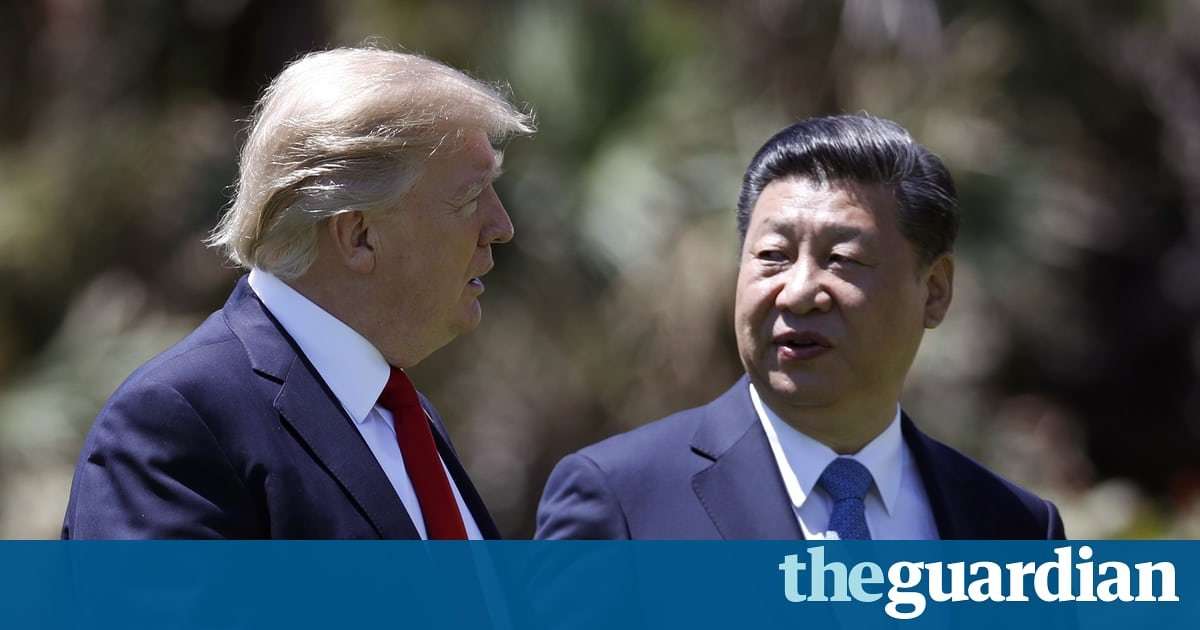Donald Trump and Chinese premier Xi Jinping agree an increase in Hollywood imports, up from the current 34 a year, as part of recent trade talks
China is set to allow the release of more Hollywood films as part of a trade pact with the United States.
The South China Morning Post reports that a higher number of movies from the US will be permitted to be shown on the mainland as a sign from Beijing that it is taking steps to cut its trade surplus with the US. China is also expected to increase its imports of American soy, pork and beef as part of the agreement, government researcher Mei Xinyu told the newspaper.
Tension over trade between the countries has been heightened in recent months following the election of Donald Trump, who has been critical of US trade deals with China. Trump had threatened to impose punitive tariffs on Chinese imports in response. However, the president held “very frank” and “very positive” discussions with Chinese premier Xi Jinping at Mar-a-Lago last weekend, according to US secretary of state Rex Tillerson, easing fears of a trade war between the countries.
Facebook Twitter Pinterest Furious 7, Hollywood’s most successful movie in China so far. Photograph: Everett/REX Shutterstock/Everett/Rex Shutterstock
As part of a bilateral trade agreement signed in 2012, China has maintained a cap on the number of foreign films that can be shown each year, to ensure that Chinese-qualifying films account for 60% of box-office share. Last year, the annual quota of 34 films was relaxed to 38 in a bid to boost anaemic Chinese box-office returns. A renegotiation of the quota agreement between the two countries is due to be conducted this year.
News of an increase in Hollywood releases in China is likely to be received enthusiastically by a film industry that considers the Chinese market as crucial to its future prosperity. The country is currently the biggest single export market for US films, but limits to the number of releases in the country have prevented greater growth.

Brosnapz18 on August 14th, 2017 at 15:57 UTC »
I see this 34 Hollywood films a year number thrown around a lot and I'd like to clear it up because it's not entirely accurate. In this context the number 34 refers to an annual quota China sets on foreign revenue-sharing films. In practice, China often chooses to import Hollywood films because they typically have a higher box office gross which means more money for the Chinese distributors and theaters, however it is not strictly limited to Hollywood films. Outside of these 34 revenue-sharing films, China allows the importation of roughly 30 additional foreign films, however the foreign company must sell the distribution rights for mainland China to a Chinese distributor and the foreign company does not receive a share of the box office revenue. Additionally, Chinese-Hollywood co-productions are not subject to any quota.
Source: Wrote a thesis on this, PM if you want to read it (note: it's written in Chinese)
TL;DR: China sets an annual import quota of 34 revenue-sharing foreign films, NOT specifically Hollywood films.
AJEstes on August 14th, 2017 at 12:43 UTC »
South Korea had a similar law for a long time (to prevent foreign films from crashing the local studios), which changed with the Free Trade Agreement a few years back. There was a lot of protests about it, and how it was the End of Korean Filmmaking.
However, in the years since, I have only seen the Korean film market grow in popularity and begin to move overseas even more than it had before. I think the same would be true for China if they changed their import laws.
gwdope on August 14th, 2017 at 12:09 UTC »
China helped NASA in the original book The Martian, so that's not a good example of a movie being tailored for the Chinese market.